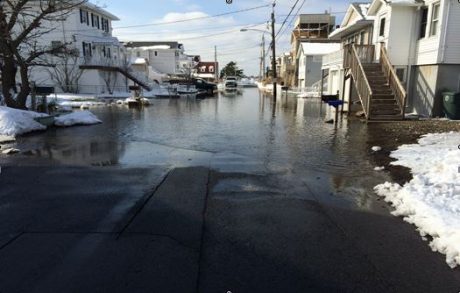10-Year Climate Ready Accomplishments in Long Island Sound

By the time EPA announced the creation of the Climate Ready Estuary Program (CRE) in February 2008, the Long Island Sound Study (LISS) National Estuary Program (NEP) had begun preparations for future monitoring and management of climate impacts on the Long Island Sound ecosystem. Here is a brief timeline of Climate Ready accomplishments the LISS program has completed in the last 10 years.
- The LISS NEP Work Plan for FFY2008 dedicated $150K toward identifying Sentinel Monitoring sites for climate change in LIS.
- By 2009, the LISS created a Sentinel Monitoring for Climate Change Program (SMCCP) work group and received a CRE Direct Technical Assistance Award to work with EPA and its contractor, ICF International, to develop a Climate Change Monitoring Plan for LIS.
- From Sept 2009 to June 2010, ICF worked with the work group to produce numerous documents including a synthesis of climate change drivers and responses in LIS, a list of candidate climate change indicators and an indicator identification and evaluation framework.
- 2010: Through the EPA LISO, CT DEEP and ICLEI were awarded a 2010 CRE
 Partner Start-up Grant to go through the adaptation planning process in Groton, CT holding a series of Coastal Climate Adaptation Workshops (3) to share out the lessons learned with other communities by developing an adaptation resources toolkit.
Partner Start-up Grant to go through the adaptation planning process in Groton, CT holding a series of Coastal Climate Adaptation Workshops (3) to share out the lessons learned with other communities by developing an adaptation resources toolkit.
- In 2011, the LISS SMCCP released a strategic plan to quantify the impacts of climate change and assist the LISS Management Conference in designing a climate change monitoring program for LIS ecosystems.
- 2012: The SMCCP also funded an online climate change ‘Data Citation Clearing House’ database to address the need for a central repository for LIS climate change research.
- 2012-2014: LISS partner agencies, CT DEEP and NYSDEC, pooled Clean Water Act Sec. 119 funding to sponsor the first SMCCP Pilot Project, Sentinels of Climate Change, conducted by UConn Ornithologist Christopher Elphick.
- 2014-2016: The LISS funded two additional pilot scale monitoring/research projects focusing on the impact of climate change on salt marshes and changes in physical and chemical driver variables that were identified in the SMCCP strategic plan.
- 2014: The Connecticut Institute for Resilience and Climate Adaptation (CIRCA), is established. CIRCA will help coastal and inland floodplain communities in Connecticut and throughout the Northeast better adapt to changes in climate and also make human‐built infrastructure more resilient while protecting valuable ecosystems and the services they offer to human society.
- In 2016, UConn Dept. of Marine Sciences received an $88,120 CRE supplemental funding grant plus $9,571 LISS supporting funds to evaluate and refine chlorophyll a estimates from remote sensing imagery.
- 2016: LISS created an on-line Climate Change Toolbox for Educators and Town & City Resources.
- In 2017, CT Sea Grant received an additional $30,000 in funding for a CRE project under the NEP to complete a LIS Climate Change Vulnerability Assessment.
- 2017-2018: The 2011 strategic plan is currently being reviewed and revised by the LISS Climate Change work group to include an updated list of climate change indicators and recommendations.
To learn more about the LISS SMCCP, please visit LISS Climate Change and Sentinel Monitoring webpage.